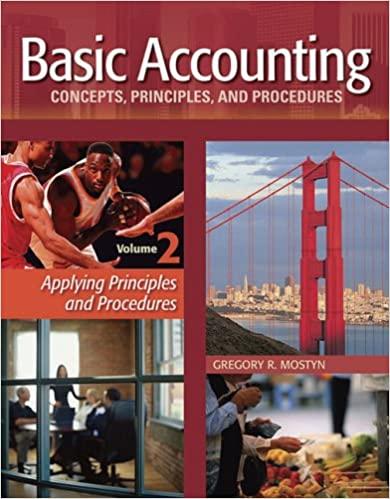



The executive education (EE) unit at the Business School of Central State University offers both open-enrollment (anyone can sign up) and custom (designed for a specific client) executive education programs. CSU has just received an inquiry from a prospective client about its prices for leadership seminars. The prospective client wants bids for three alternative activity levels: (1) one seminar with 20 participants, (2) four seminars with 20 participants each (80 participants total), or (3) eight seminars with 140 participants in total. EE's cost analyst has provided the following differential cost estimates. $ 900 150 Setup costs for the entire job Materials costs per participant (brochures, handouts, coffee, lunch, etc.) Differential direct labor costs: One seminar Four seminars Eight seminars $ 1,800 7,800 13, 200 In addition to the preceding differential costs, EE allocates fixed costs to jobs on a direct-labor-cost basis, at a rate of 75 percent of direct labor costs (excluding setup costs). For example, if direct labor costs are $100, EE would also charge the job $75 for fixed costs. EE charges clients for its costs plus 20 percent. For the purpose of charging customers, costs equal the setup costs plus materials costs plus differential labor costs plus allocated fixed costs. EE has enough excess capacity to handle this job with ease. Required: a. Assume EE's bid equals the total cost, including fixed costs allocated to the job, plus the 20 percent markup on cost. What should EE bid for each of the three levels of activity? b. Compute the differential cost (including setup costs) and the contribution to profit for each of the three levels of activity. Note that fixed costs are not differential costs. c. Assume the prospective client gives three options. It is willing to accept either of EE's bids for the one-seminar or four-seminar activity levels, but the prospective client will pay only 90 percent of the bid price for the eight-seminar package. EE's director responds, "We can't make money in this business by shaving our bids! Let's take the four-seminar option because we make the most profit on it." C-1. What would be the contribution to profit for each of the three options? c-2. Do you agree with the EE's director? One Seminar Four Seminars Eight Seminars Number of participants Total costs Markup Bid One Seminar Four Seminars Eight Seminars Differential costs: Setup costs Materials cost Differential labor costs Allocated fixed costs Total differential costs $ 0 $ 0 $ 0 Differential bid Contribution to profit One Seminar Four Seminars Eight Seminars Bid Incremental costs: Setup costs Material cost Differential labor costs Total incremental costs $ 0 $ 0 $ 0 Contribution to profit










